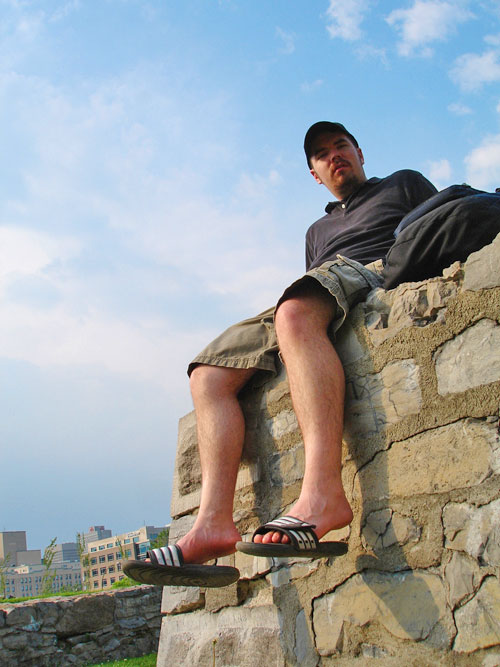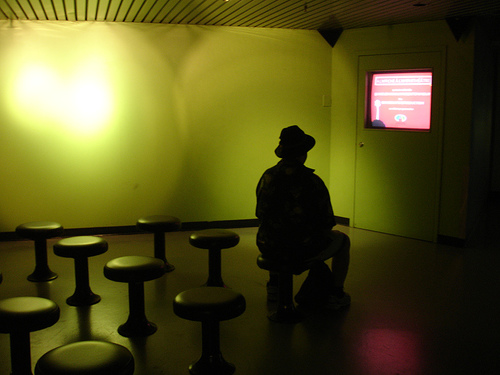After two days, I’m still decompressing from every bit of travel goodness we managed to cram into just four days in Montreal. We skipped all the favorites we’ve come to know and love and opted for an altogether different trip than either of us had experienced – different hotel, different bars, different experiences, and a whole new part of town. We saw everything for the first time together. It was like an entirely different city.
Vagabondish is reader-supported. When you buy through links on our site, we may earn a small affiliate commission. Read our disclosure.
We took our cameras everywhere. K’s been perfectly happy with the straight-up, no nonsense point-and-shoot Sony; while my geeky badself is packing a new, Darth Vader-like Canon Rebel. We spent a heapin’ helpin’ of our time snapping photos and really getting to know each other our cameras. I’m now sifting through several hundred photos – hers and mine – and seeing things just a little bit differently. I’m seeing things through her eyes. And then through mine.
I’m starting to get a tiny feel for what subjects make a really great photo, but the idea of photographic composition is still so elusive to me. I’m analytical, technical and objective; composition is subjective, right-brained and vague.
To complicate things, I grew up at the dawn of the instant gratification age of Bagel Bites and MTV (aside: I can’t believe there’s actually a Wiki entry for Bagel Bites). So, though I love to educate myself, I’m overzealous when it comes to learning new things. Oftentimes, I have to pull myself back from the brink of maddening impatience and remember that anything worth learning takes time.

I’m picking up the technical side quickly – aperture, shutter speed, exposure, etc. Given my penchant for geekery and all things electronic, that’s no surprise. The concepts are concrete – larger aperture means a shallow depth of field; higher film speed raises the sensitivity of the camera’s sensor; etc. But I’m coming to the realization that understanding such things is only the smallest part of a very complex puzzle. It’s like understanding that sugar is sweet, yeast makes the dough rise, and eggs hold the whole recipe together, but still being unable to bake a killer loaf of bread.
Of the best shots we snapped in Montreal, K took most of them. She has a real knack for composition – she gets it. And what I envy most is that she doesn’t even try. Hell, she doesn’t even know or care about the word composition. She picks up the camera, occasionally asks what mode would work best given the lighting, and blissfully, ignorantly begins snapping away.

I’m finding composition to be a real challenge – a thorn in my creative side. And I can’t help but think it’s because I’m too damn analytical. My shots thus far feel forced and technical. Like I’m trying too hard to make everything work.

It’s only been a couple of weeks since my bouncing baby Rebel landed at my doorstep and I know I’m just being impatient. But how does one go about learning and thinking more creatively? Unlike the websites I design and develop everyday, photography is a wide-open, intimidating space. Even with the best paints and the highest quality brushes, the canvas isn’t going to paint itself. Hell, the canvas isn’t even remotely defined. It’s whatever the photographer wants it to be.


